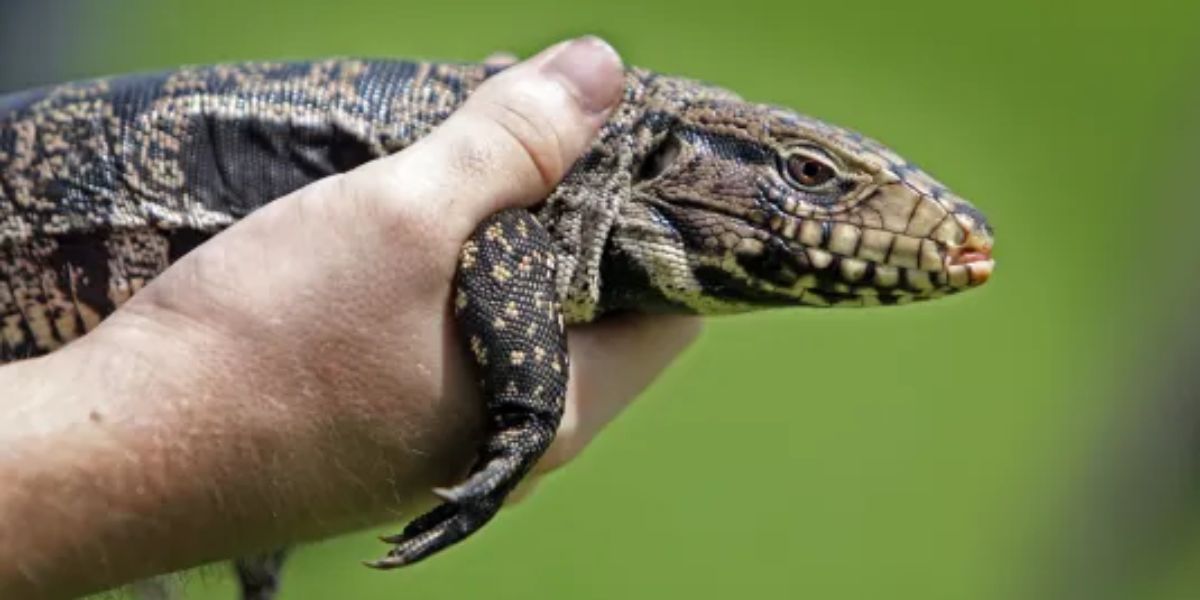Recent reports of a sighting of a massive invasive lizard species that could seriously damage the area’s natural ecosystem have come from the Florida Keys.
A South American lizard known as the Argentine black and white tegu was recently sighted in North Key Largo, according to the Florida Keys National Wildlife Refuges Complex.
The species may have started to colonize Florida through purposeful releases or escapes from captivity, according to the Florida Fish and Wildlife Conservation Commission.
Currently, there are verifiable reports of the tegu in Texas, Alabama, Georgia, and the Carolinas in addition to the Sunshine State.
“Argentine black and white tegus are large lizards that can grow up to nearly five feet in length,” biologists stated. “They have a distinctive mottled black-and-white pattern, often arranged into bands across their back and tail.”
Because they can swim well, these reptiles find the Southeast’s wetlands and coastlines to be perfect places to nest.
Although they eat a variety of foods, tegus are omnivores that especially enjoy the eggs of ground-nesting birds and other reptiles.
The majority of the thousands of sightings were focused in Florida’s Treasure Coast and down to southern Miami-Dade County, according to a map created by the University of Georgia’s Center for Invasive Species and Ecosystem Health.
According to the university, Argentine black and white tegus are normally harmless to people, but if they feel threatened or cornered, they may defend themselves with their tails and sharp fangs.
Smoke from Wildfires Triggers Severe Air Quality Alerts in Western North Carolina
Concerns have been raised by Florida wildlife officials regarding the tegu’s possible harm to the state’s other fauna, especially gopher tortoises and sea turtles.
Because tegus are known to eat the eggs of certain species, conservation efforts for these creatures are made more difficult.
Education Department Investigates California’s Gender Identity Policies in Schools
To assist researchers in monitoring and controlling the invasive lizard’s spread, the FWC is asking locals to be on the lookout for it and report any sightings.
Residents of Florida are urged to report any sightings of the reptiles by contacting the FWC’s Exotic Species Hotline at 888-483-4681.
This Information has been sourced from Fox Weather.







Leave a Comment